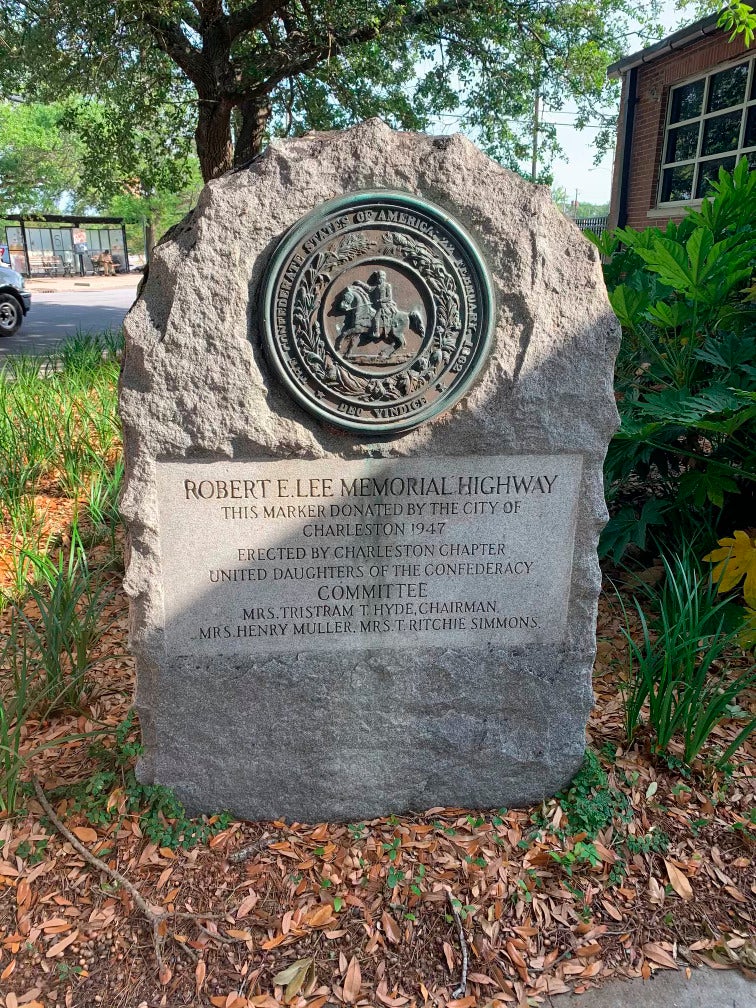Confederate marker fight may send SC and Charleston to court
South Carolina’s top lawyer and Charleston appear to be heading to court to figure out if the city broke a state law protecting Confederate memorials when it removed a marker commemorating a rebel general from the front lawn of a public school

South Carolina's top lawyer and Charleston appear to be heading to court to figure out if the city broke a state law protecting Confederate memorials when it removed a marker commemorating a rebel general from the front lawn of a public school.
The stone memorial calling the street outside the school the “Robert E. Lee Highway” was removed in July at the request of leaders at the Charleston Charter School for Math and Science in downtown Charleston, city officials said.
The highway was never constructed, so city officials decided the monument didn't fall under the state's Heritage Act, which protects statues, street names, markers and anything else considered historic from being changed or removed without permission of the state Legislature.
State Attorney General Alan Wilson sent a letter Thursday to Charleston Mayor John Tecklenburg, saying the city must either restore the monument to the school or get seek permission from the General Assembly to move it.
"Unless the Lee Memorial is restored to its rightful place in preserving history, we will go to court to uphold the Heritage Act. The rule of law must prevail," Wilson wrote in his letter.
Lawyers for the city are working on a formal response to Wilson's letter, but said they thoroughly reviewed the request and found it followed the Heritage Act and a state Supreme Court ruling in September that upheld the law but struck down a requirement that two-thirds of the General Assembly must approve a move or name change.
“Courts exist to resolve sincere differences of legal opinion, which is what we have in this case,” Charleston spokesman Jack O’Toole said in a statement.
Several cities, counties and universities across the state have wanted to remove memorials or the names of segregationists from buildings, but none of them have been as aggressive as Charleston.
The city removed a statue of former U.S. Vice President and slavery supporter John C. Calhoun from a pedestal that towered over downtown in the summer of 2020. Wilson's office said it was allowable because the statue was not on public property and didn't honor an event covered by the Heritage Act.
The Heritage Act became law in 2000 as part of a bill that also removed the Confederate flag from the state House and Senate chambers and from flying above the Statehouse dome. It specifically protects monuments from 10 wars — from the Revolutionary War to the Persian Gulf War. It also protects monuments honoring African Americans and Native Americans as well as a catchall phrase of “any historic figure or historic event.”
The Robert E. Lee monument at the Charleston school was placed there in 1947 and is one of several similar markers placed on roads around the state by the United Daughters of the Confederacy.
The group placed its marker in Columbia as a program that “glorified the Confederacy, explained secession as a political act rather than a defense of slavery, and vilified the federal government’s empowerment of African Americans during Reconstruction,” according to the Historic Columbia preservation organization.
The American Heritage Association, which is suing over the removal of the Calhoun statue, also is threatening a lawsuit against the city over the removal of the Lee marker.
“Lee’s virtues and character are timeless, and they are worthy of emulation for all generations of Americans to come,” association board member Kyle Sinisi said in a statement.
Bookmark popover
Removed from bookmarks